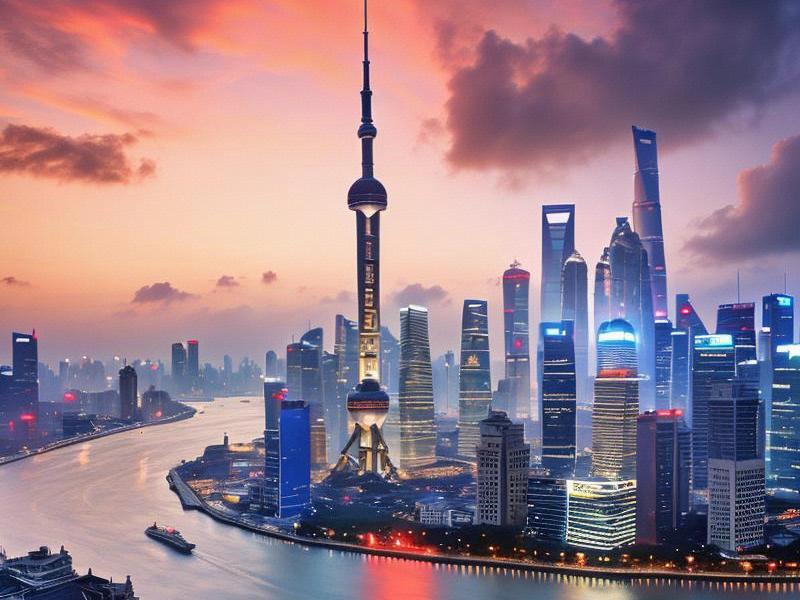
Shanghai, often referred to as the "Pearl of the Orient," stands as a beacon of China's economic and cultural progress. This vibrant metropolis, with its skyline punctuated by the iconic Oriental Pearl Tower and the futuristic Shanghai Tower, is a testament to the city's relentless pursuit of modernity. Yet, beneath this glittering facade lies a deep-rooted history and a rich tapestry of traditions that have shaped Shanghai into the unique city it is today.
The history of Shanghai dates back to the Song Dynasty, when it was merely a small fishing village. However, its strategic location at the mouth of the Yangtze River turned it into a bustling port by the Ming and Qing Dynasties. The 19th century saw Shanghai become a major center for international trade, with the establishment of the International Settlement and the French Concession. This period of foreign influence left an indelible mark on the city's architecture, cuisine, and culture.
In the 20th century, Shanghai experienced rapid urbanization and industrialization, emerging as one of China's most important economic centers. The city witnessed significant events, including the rise and fall of the Chinese Communist Party, which ultimately led to its transformation into the socialist hub we see today. Despite these political upheavals, Shanghai's spirit of resilience and adaptability has remained unshaken.
Today, Shanghai is a global financial center, housing the world's busiest container port and ranking as the largest city by population in China. Its Pudong district, once a rural area, has been transformed into a symbol of China's economic reform and opening up. The Lujiazui financial district, with its skyscrapers like the Shanghai Tower, Jin Mao Tower, and the Oriental Pearl Tower, is a testament to the city's ambition and innovation.
上海龙凤419官网 The city's economy is diverse, with key sectors including finance, trade, manufacturing, and technology. Shanghai is home to the Shanghai Stock Exchange, one of the largest in the world, and hosts numerous multinational corporations and international organizations. The city's strategic location and well-developed infrastructure make it a hub for global commerce and investment.
However, Shanghai's story is not just one of economic growth. It is also a city that cherishes its cultural heritage. The Bund, a historic waterfront area, offers a glimpse into the city's colonial past, with its blend of Gothic, Baroque, and Romanesque architecture. The Yu Garden, a classical Chinese garden, provides a serene escape from the urban hustle, showcasing traditional Chinese landscaping and architecture.
Shanghai's culinary scene is another aspect that reflects its unique blend of cultures. From the famous Xiaolongbao (soup dumplings) to the savory Shengjianbao (pan-fried dumplings), the city's food culture is a melting pot of flavors. The French Concession, with its tree-lined streets and historic cafes, offers a taste of European influences, while the vibrant night markets and street food stalls provide a glimpse into the city's local flavors.
The city's cultural scene is equally vibrant. Shanghai is home to numerous museums, theaters, and art galleries, showcasing a wide range of artistic expressions. The Shanghai Museum, with its impressive collection of Chinese art, is a must-visit for art enthusiasts. The city also hosts international cultural festivals, such as the Shanghai International Film Festival and the Shanghai World Expo, which attract millions of visitors from around the world.
上海龙凤419会所 Shanghai's commitment to innovation is evident in its efforts to become a smart city. The city has invested heavily in digital infrastructure, smart transportation systems, and e-governance initiatives. The launch of the world's first commercial magnetic levitation (maglev) train, connecting Pudong International Airport to the city center, is a testament to the city's forward-thinking approach.
However, Shanghai's rapid development has not been without challenges. The city faces issues such as traffic congestion, air pollution, and housing shortages. To address these challenges, the government has implemented various measures, including the expansion of public transportation networks, the promotion of green technologies, and the development of affordable housing projects.
Shanghai's education system is another area of focus, with the city striving to attract top talent and foster innovation. The establishment of research institutions, universities, and technology parks has created a fertile ground for scientific research and technological advancements. Shanghai's universities, such as Fudan University and Tongji University, are renowned for their academic excellence and contributions to research.
爱上海同城对对碰交友论坛 The city's commitment to sustainability is also noteworthy. Shanghai has set ambitious goals to reduce carbon emissions and promote renewable energy. The construction of the Shanghai Tower, which incorporates green building technologies, is a prime example of the city's efforts to crteeaa more sustainable urban environment.
Shanghai's role in global affairs is also significant. As a member of the United Nations and a key player in international organizations, the city plays a crucial role in addressing global challenges such as climate change, economic development, and public health. The city's leadership in these areas reflects its commitment to making a positive impact on the world.
In conclusion, Shanghai is a city that embodies the spirit of China's transformation and progress. Its blend of modernity and tradition, economic dynamism, and cultural vibrancy makes it a unique and fascinating place to explore. As Shanghai continues to grow and evolve, it remains a symbol of China's aspirations and a testament to the city's resilience and adaptability.
